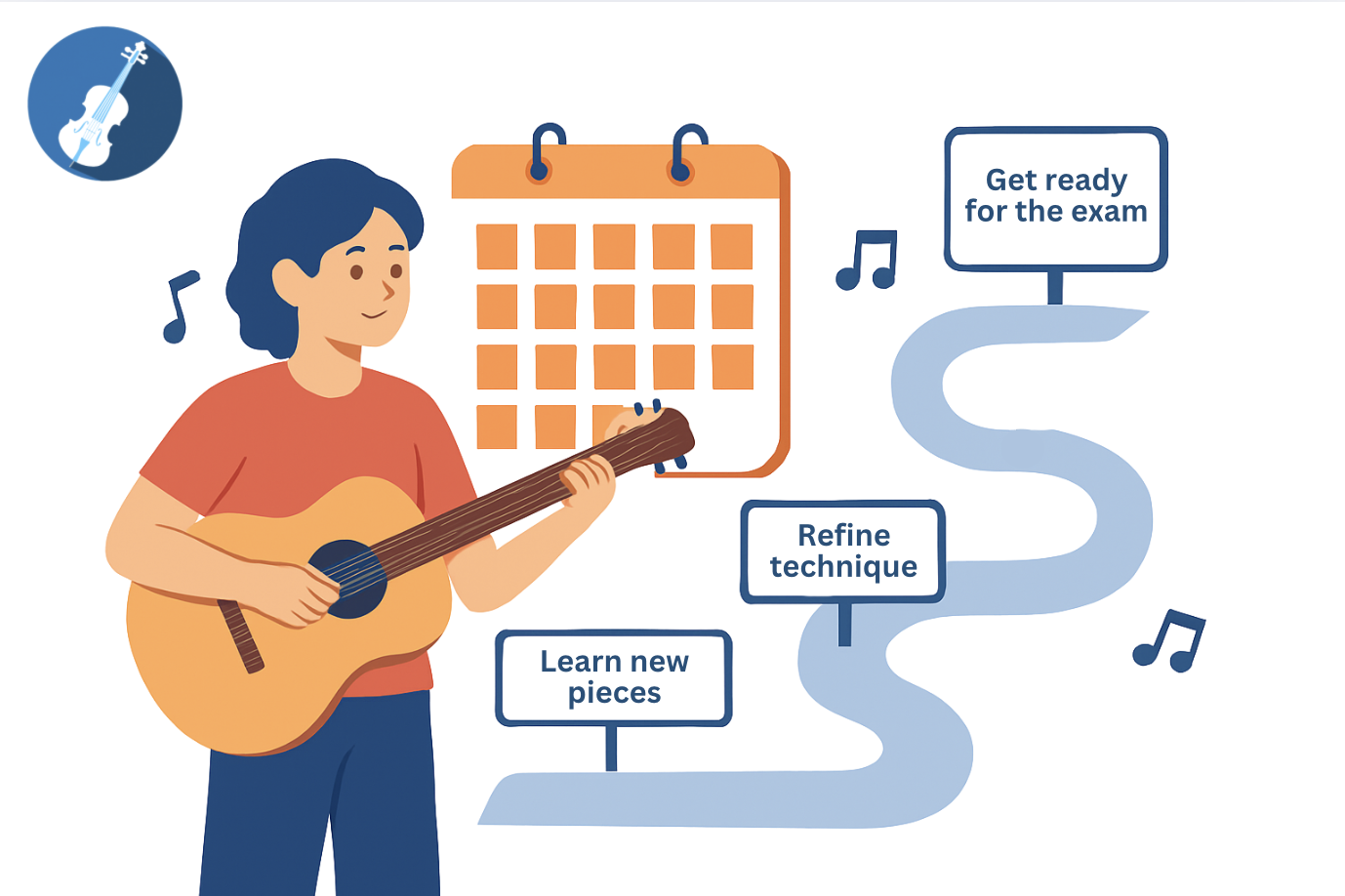Looking Ahead: Planning for the New Academic Year and Your Grade Exams
As we begin a new academic year at Hampstead Music School, it’s the perfect time to set goals, build good habits, and start thinking ahead about grade exams. Whether you are working towards your very first assessment or preparing for a higher-level exam, planning your time frame now will help you stay confident, organised, and ready to perform at your best.
Why Planning Matters
Grade exams aren’t just about the final performance—they represent months of steady progress, practice, and musical growth. With careful planning, students can avoid last-minute stress, enjoy the process, and develop skills that last well beyond exam day.
Step 1: Review Your Starting Point
Assess your current level: Speak with your teacher to decide which grade is right for you this year.
Identify your strengths and gaps: Do scales need brushing up? Is sight-reading a challenge? Early awareness helps shape your practice routine.
Step 2: Map Out the Academic Year
Most music exam boards (such as ABRSM or Trinity) offer exam sessions in spring, summer, and winter. Together with your teacher, decide which session fits your personal schedule, school commitments, and readiness.
Autumn term (Sept–Dec): Focus on learning new repertoire and technical exercises.
Spring term (Jan–Mar): Consolidate pieces, refine technique, and strengthen supporting tests (aural, sight-reading).
Summer term (Apr–Jul): Polishing and performance preparation—aim for confident run-throughs and mock exams.
Step 3: Set Milestones
Break down the preparation into smaller, achievable goals:
By half-term: first piece secure, scales in progress.
By end of term: all pieces learned, basic fluency in supporting tests.
Two months before exam: begin full run-throughs.
Final weeks: focus on musical detail, expression, and performance practice.
Step 4: Balance and Wellbeing
A successful exam journey isn’t only about practice hours—it’s about balance. Encourage regular short practice sessions rather than cramming, take breaks, and remember that music is about enjoyment as much as achievement.
Step 5: Stay Flexible
Sometimes readiness takes longer than expected—and that’s okay. Teachers will guide students honestly about when to book an exam. Remember: it’s better to be fully prepared and confident than to rush.
